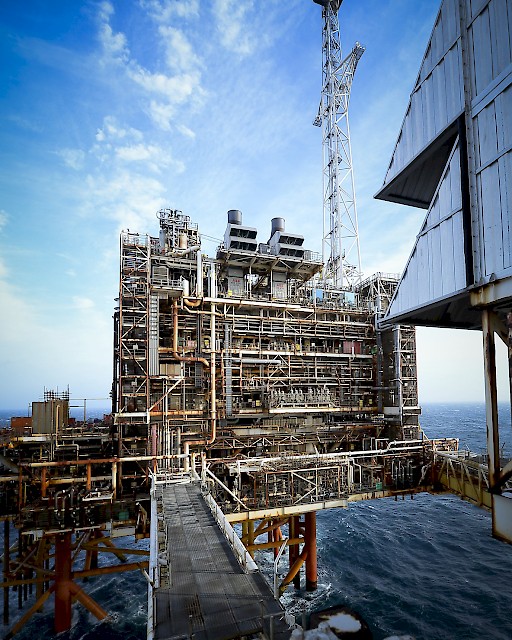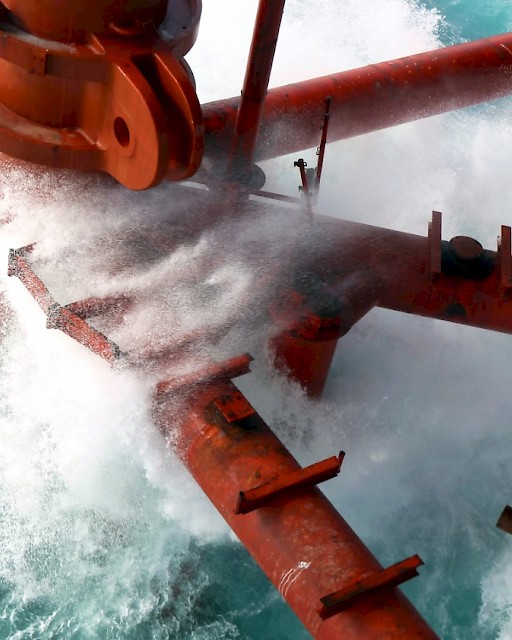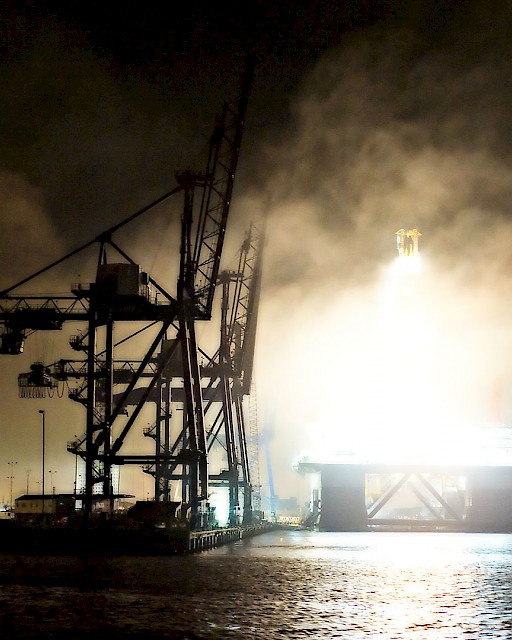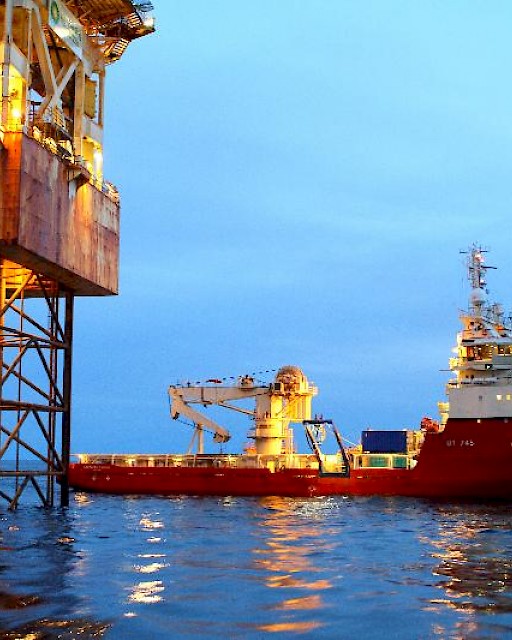Offshore Chemicals
OSPAR considers the use and discharge of hazardous substances as a cause for great concern.
To reduce the overall impact of offshore chemicals on the marine environment, OSPAR has adopted a harmonised mandatory control system (HMCS) for use and reduction of discharges of offshore chemicals by the offshore oil and gas industry. This system promotes the shift towards the use of less hazardous or preferably non-hazardous substances. There is a common OSPAR interpretation of which chemicals are covered by the control system. OSPAR is continuing to work towards harmonising, where possible, the OSPAR HMCS approach with EU REACH Regulation and Biocidal Products Regulation.
As part of OSPAR's Quality Status Report due to be published in 2023, we have published an in-depth report on the assessment of impacts of the offshore oil and gas industry on the marine environment along with a series of fact sheets. The fact sheet on decommissioning can be accessed by clicking the image below.
OFFSHORE INDUSTRY QSR 2023 THEMATIC ASSESSMENT
Briefing note for the thematic assessment
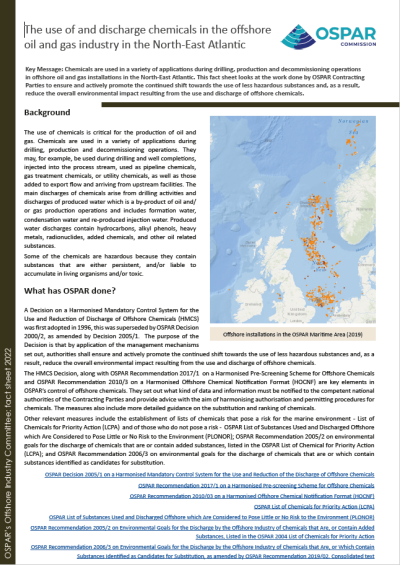 Chemical suppliers must provide the national authorities with data and information about chemicals to be used and discharged offshore in accordance with the Harmonised Offshore Chemical Notification Format (HOCNF). OSPAR has Guidelines on how to complete the format. Based on the information sent by the chemical supplier the national authority carries out the pre-screening of offshore chemicals (OSPAR Recommendation 2019/04) and takes the appropriate regulatory action, such as issuing discharge permits.
Chemical suppliers must provide the national authorities with data and information about chemicals to be used and discharged offshore in accordance with the Harmonised Offshore Chemical Notification Format (HOCNF). OSPAR has Guidelines on how to complete the format. Based on the information sent by the chemical supplier the national authority carries out the pre-screening of offshore chemicals (OSPAR Recommendation 2019/04) and takes the appropriate regulatory action, such as issuing discharge permits.
Chemical suppliers should follow the OSPAR Guidelines for Toxicity Testing of Substances and Preparations Used and Discharged Offshore. OSPAR has also prepared a Protocol on Methods for the Testing of Chemicals used in the offshore oil industry.
The OSPAR List of Substances/Preparations Used and Discharged Offshore which are Considered to Pose Little or No Risk to the Environment (PLONOR) contains substances whose use and discharge offshore are subject to expert judgement by the competent national authorities or do not need to be strongly regulated.

